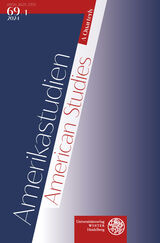Autor: Ulfried Reichardt
- «
- 1
- »
Die Suche erzielte 4 Treffer.
Reviews Rezensionen open-access
The Network as a Category in Cultural Studies and as a Model for Conceptualizing America Beitrag open-access
Introduction: Network Theory and American Studies Beitrag open-access
- «
- 1
- »
